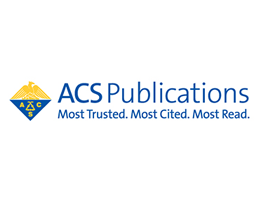FOR IMMEDIATE RELEASE
ACS News Service Weekly PressPac: April 20, 2022
Recent advances in forensic science research
Forensic scientists collect and analyze evidence during a criminal investigation to identify victims, determine the cause of death and figure out “who done it.” Below are some recent papers published in ACS journals reporting on new advances that could help forensic scientists solve crimes. Reporters can request free access to these papers by emailing newsroom@acs.org.
“Insights into the Differential Preservation of Bone Proteomes in Inhumed and Entombed Cadavers from Italian Forensic Caseworks”
Journal of Proteome Research
March 22, 2022
Bone proteins can help determine how long ago a person died (post-mortem interval, PMI) and how old they were at the time of their death (age at death, AAD), but the levels of these proteins could vary with burial conditions. By comparing bone proteomes of exhumed individuals who had been entombed in mausoleums or buried in the ground, the researchers found several proteins whose levels were not affected by the burial environment, which they say could help with AAD or PMI estimation.
“Carbon Dot Powders with Cross-Linking-Based Long-Wavelength Emission for Multicolor Imaging of Latent Fingerprints”
ACS Applied Nanomaterials
Jan. 21, 2022
For decades, criminal investigators have recognized the importance of analyzing latent fingerprints left at crime scenes to help identify a perpetrator, but current methods to make these prints visible have limitations, including low contrast, low sensitivity and high toxicity. These researchers devised a simple way to make fluorescent carbon dot powders that can be applied to latent fingerprints, making them fluoresce under UV light with red, orange and yellow colors.
“Proteomics Offers New Clues for Forensic Investigations”
ACS Central Science
Oct. 18, 2021
This review article describes how forensic scientists are now turning their attention to proteins in bone, blood or other biological samples, which can sometimes answer questions that DNA can’t. For example, unlike DNA, a person’s complement of proteins (or proteome) changes over time, providing important clues about when a person died and their age at death.
“Integrating the MasSpec Pen with Sub-Atmospheric Pressure Chemical Ionization for Rapid Chemical Analysis and Forensic Applications”
Analytical Chemistry
May 19, 2021
These researchers previously developed a “MasSpec Pen,” a handheld device integrated with a mass spectrometer for direct analysis and molecular profiling of biological samples. In this article, they develop a new version that can quickly and easily detect and measure compounds, including cocaine, oxycodone and explosives, which can be important in forensics investigations.
###
The American Chemical Society (ACS) is a nonprofit organization chartered by the U.S. Congress. ACS’ mission is to advance the broader chemistry enterprise and its practitioners for the benefit of Earth and all its people. The Society is a global leader in promoting excellence in science education and providing access to chemistry-related information and research through its multiple research solutions, peer-reviewed journals, scientific conferences, eBooks and weekly news periodical Chemical & Engineering News. ACS journals are among the most cited, most trusted and most read within the scientific literature; however, ACS itself does not conduct chemical research. As a leader in scientific information solutions, its CAS division partners with global innovators to accelerate breakthroughs by curating, connecting and analyzing the world’s scientific knowledge. ACS’ main offices are in Washington, D.C., and Columbus, Ohio.
To automatically receive press releases from the American Chemical Society, contact newsroom@acs.org.
Note: ACS does not conduct research, but publishes and publicizes peer-reviewed scientific studies.
Media Contact
ACS Newsroom
newsroom@acs.org


